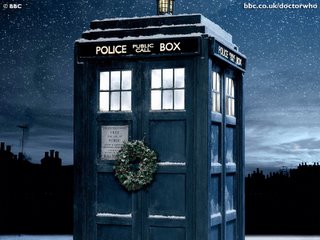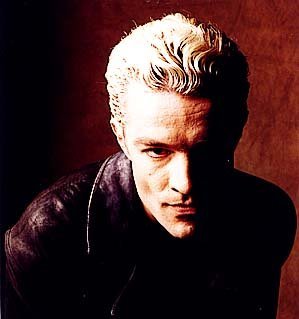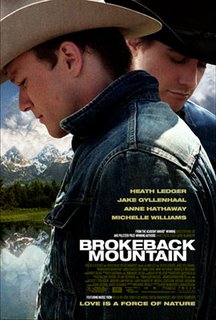As I said, I wrote this in 2001.
The second season continued Rick Berman's stiff attempt to make the show different, except most stories were unmemorable and many fought each other for, what writer David McIntee called, "maximum dullness". Once upon a time, Brannon Braga was a talented writer, penning many of the best TNG stories. But now, as the show began year two, he was a shadow of what he once was; more YES man than a writer. The Braga penned Non Sequitur had no real drama, because you knew Harry was going to get back to Voyager and Cold Fire, a belated sequel to the series opener, was filled with many bland ideas and stretched the mind to wonder what Braga was actually trying to say. Then there was Threshold which was perhaps the worst episode ever produced in the Trek canon. It was a high concept story that once again showed Trek putting the cart before the horse; hitching their ideas on the thinnest of threads.
One actress I like from the show, was Roxann Dawson, who was the proverbial Mary Richards, some one who could take a nothing script and turn it into something special, such as she did with Prototype. While the script added nothing to the arc and turned out rather silly, her performance made you want to watch the show, even though it could risk death from boredom. There were some highlights of season two, including Meld, which had the always-reliable bad guy character actor Brad Dourif delivering a truly subtle and creepy performance. And only a guest star turn by Joel Grey in Resistance saved that episode. And while not original in any stretch of the word, with uninteresting bad guys and a story that has no real motivation, Grey salvages the hour. There was, also, the marvelous return of Q. If you look beyond the obvious ratings stunt the show was, Death Wish was well acted and the script actually works (and mostly because Piller wrote a great story dealing with a touchy subject -euthanasia). And while the Vidiians make another appearance, the second season is dominated by the Kazon along with Tom, Tuvok and Janeway's plan to root out a spy ( which, if anyone is counting, made the second in two years) on Voyager. Once again, I must mention how silly the Kazons really are and how the only high point was actor Anthony de Longis performance. He brought a menace to the role of Culluh, but sadly he was hobbled with Seska, a shrew if there was one. Thaw was just plain creepy, but in the good sense. Some have said that this show was a real throw back to TOS, at least in the set design. I say that this is what made the show work. It was by means no budget breaker, but its surreal setting and Michael McKean's queer performance really makes the show. As a person who thinks clowns are scary to begin with, I found the idea of people dying by being scared to death really frightening. So, the rest of season two rambled on, but the show still had not found its space legs and concluded with a cliffhanger that was not as good as it should have been. Basics began to resolve the Kazon issue, but beyond Dourif's return as Suder, the show lacked any sense of threat and it was fairly obvious the crew was going to lose. And stranding the crew on the planet Hannon 4 was out of character for the Kazon, also. However, maybe Seska did have a moral streak running through her.
Personally, and most logically, Culluh should've killed them.
Season three saw the loss of co-creator Michael Piller, and the tone of the series shifted. "I thought Voyager was less focused over the years but certainly had fine moments, and certainly is a proud achievement for everybody involved with it," Piller diplomatically told Cinefantastique's Anna L. Kaplan. Meanwhile, the Kazon and the Vidiians would finally be left behind (it had been stated many times that both their space was not that large, yet the crew kept bumping into them, even after spending days and weeks in warp). And Brannon Braga began his rise as the new executive producer. He immediately drew the ire of many fans, with his 30th anniversary Trek episode Flashback. While the concept of the story was silly (it just an excuse to get Janeway and Tuvok on the bridge of the Excelsior during the events of Star Trek VI: The Undiscovered Country with special guest star turn of TOS actor George Takei as Captain Sulu), his lack continuity showed through, killing off a character that never died in the movie (and add his speech about how the exploits of Kirk and Company would have gotten them "booted" out of Starfleet these days. This was, essentially, what was incongruously wrong with the series. The fun of Kirk's era was gone, replaced by a chain of command from corporate America. Though, I might add, this type of attitude had slithered into TNG, especially in the two-part Unification, where Picard accused Spock of "cowboy diplomacy").
Still, like season two, there were one or two shows that stood out from the rest of the crap. Despite some of its shortcomings, Flashback was well directed and acted (though you can tell Grace Lee Whitney's acting has not improved with age). False Profits was a hilarious sequel to TNG's The Price, and while the two-part Future's End also had some problems, it was well done (and introduced the Doctor's mobile emitter and a 29th Century Federation Captain named Braxton who will cause many problems later on in the series). And while Warlord was nothing to write home about story wise, the acting of Jennifer Lien was top-notch. If only more stories like this came her way, maybe she would have not been shoved out after this season. John de Lancie's returned in The Q and the Grey, a sequel to the previous seasons Death Wish, and Kate Mulgrew's turn as Sigourney Weaver's Ripley in Macrocosm were also better than average. But then there was Remember, a clunky show with a theme done many times in Trek history -the story of a group of minorities who get blamed for everything, who are then shuttled off to a "better place" and then killed. Once again, a great performance from Dawson, but we are pounded over the head with much repetition, on the allegory they are trying to put forth. Don't get me wrong, parables are Trek's bread and butter. However, over the years, they've become pedantic in nature, and usually ends with the crew jaunting away, leaving many unanswered questions, when their metaphor gets too complex. Season three also was featured the return of the Borg. Somewhat. With shows ratings dipping, Paramount felt that show need a ratings fix (like the appearance of Q), and since it was mentioned in Star Trek: First Contact, and vaguely referenced during TNG's run, that the cybernetic creatures come from the Delta Quadrant, wasn't it about time they bumped into them? At the end of the lame-assed Blood Fever we see a dead Borg, which came off as a late minute add on, I might hazard a guess. Then Unity happened, and once again, Braga showed why his pisses the fans off, because while this show is stupid, it never really was about the Borg, but about a group cut off from the Collective. Plus it had a glaring error in continuity. One character says she was assimilated at the famous battle from TNG's fantastic two-part Best of Both Worlds. There is no way in which she could've been at Wolf 359. Mainly, because there was only one Borg cube heading for Earth. It is illogical to accept that after the battle, the Borg ship went into transwarp, dropped a few crews off and returned to the Alpha Quadrant. It was more logical to assume that she was assimilated -along with the Roluman Borg during the events of The Neutral Zone, the season one finale of TNG, where Federation colonies and a few Romulan War Birds encountered early incursions of the Collective. It was just another attempt by Braga to alter Trek for his own agenda. Unity, by the way, was a rating hit, but most fans felt they had been baited, and were disappointed with the episode. Meanwhile, the last half of season three trudged along, producing more bad shows like Rise, Real Life and Displaced. The only highlight of the last few shows was Distant Origins, which I kind of liked and the season finale, Scorpion, which featured the return of the Borg (and we are told that their space is "vast" - a plot point to explain the Borg stories that would follow over the coming years), but in a better story.








